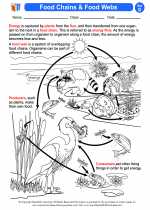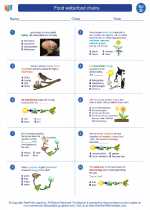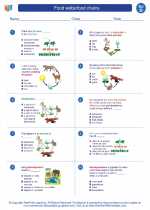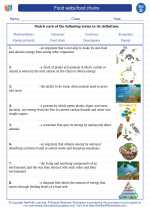What is the Quaternary Period?
The Quaternary Period is the most recent geological time period, spanning from approximately 2.6 million years ago to the present. It is characterized by the presence of widespread glacial ice and the emergence of modern humans.
Key Events and Features
During the Quaternary Period, the Earth experienced several significant climate changes, including multiple glacial and interglacial cycles. These fluctuations in climate led to the expansion and retreat of ice sheets, shaping the landscape and influencing the evolution of plants and animals.
One of the most notable events of the Quaternary Period is the appearance and spread of Homo sapiens, our species. Human migration, adaptation, and technological advancements played a crucial role in shaping the environment during this time.
Study Guide
- Climate Changes: Research the causes and effects of glacial and interglacial periods during the Quaternary Period. Explore how these climate shifts impacted Earth's ecosystems and species diversity.
- Human Evolution: Investigate the evolutionary timeline of Homo sapiens during the Quaternary Period. Examine the archaeological evidence and cultural developments that accompanied human migration and settlement.
- Geological Landforms: Study the formation of glacial landforms such as moraines, drumlins, and eskers. Understand how these features were created by the movement of ice sheets and their significance in understanding past climates.
- Biodiversity Changes: Explore the impact of climate change and human activities on the extinction and adaptation of species during the Quaternary Period. Investigate the concept of megafauna and the factors contributing to their decline.
- Impact on Modern Ecosystems: Analyze how the legacy of the Quaternary Period continues to influence the structure and function of present-day ecosystems. Consider the role of ice ages in shaping habitats and species distributions.
Studying the Quaternary Period provides a deeper understanding of the Earth's dynamic history and the complex interactions between climate, geology, and living organisms.
.◂Science Worksheets and Study Guides Fourth Grade. Food webs/food chains

 Activity Lesson
Activity Lesson
 Worksheet/Answer key
Worksheet/Answer key
 Worksheet/Answer key
Worksheet/Answer key
 Worksheet/Answer key
Worksheet/Answer key
 Worksheet/Answer key
Worksheet/Answer key
 Vocabulary/Answer key
Vocabulary/Answer key
 Vocabulary/Answer key
Vocabulary/Answer key
 Vocabulary/Answer key
Vocabulary/Answer key
